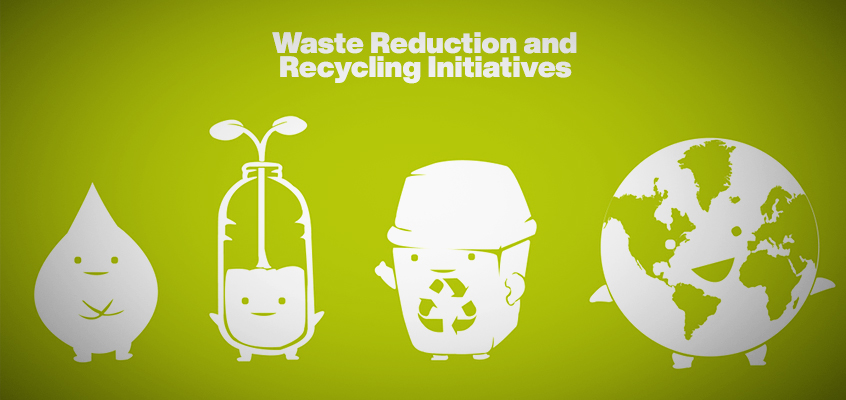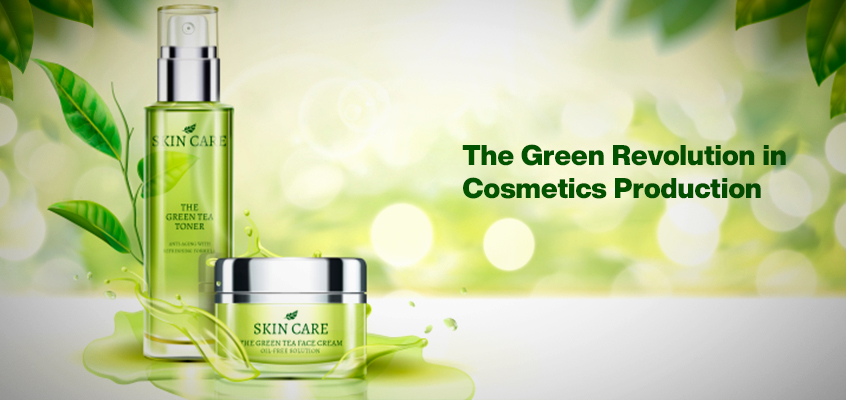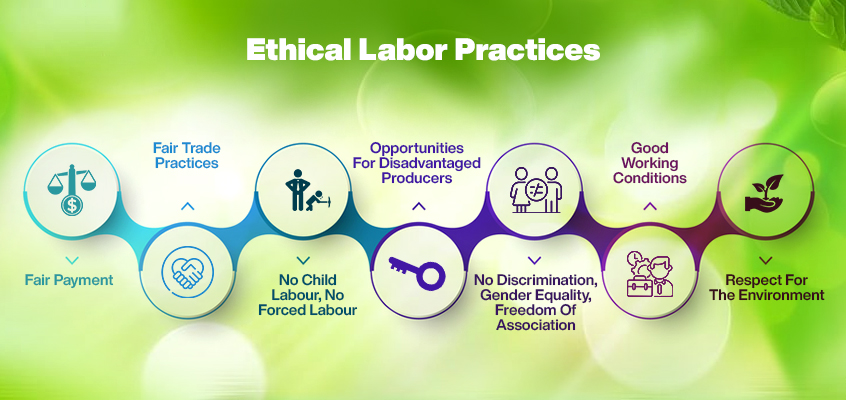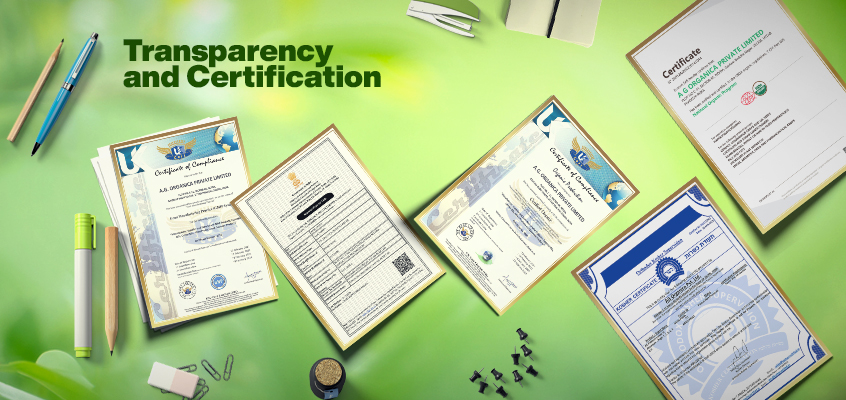Sustainable Manufacturing Practices: A Game Changer in Today's Market

Introduction
Sustainability has emerged as a crucial consideration in customer choice in today's market, which is continually expanding. Sustainable manufacturing practices are becoming more and more popular among businesses, particularly among manufacturers, private label companies, exporters, and wholesalers, as consumers become more environmentally sensitive. This aligns with environmental principles and has several advantages for long-term sustainability and competitiveness in the market. we will delve into seven key points in this blog article that emphasize environmentally friendly practices and their significance in the current marketplace.
The Green Revolution in Cosmetics Production
The beauty industry is undergoing a significant transformation towards sustainability, fueled by a growing awareness among consumers and their desire for eco-conscious products. Companies, whether they're creating their own brands, exporting products, or producing for others, are now incorporating environmentally friendly methods and technologies. This encompasses the use of renewable energy, implementing closed-loop systems, and acquiring cutting-edge machinery engineered to reduce waste and energy usage. This transition isn't just advantageous for the planet; it also strikes a chord with consumers who are actively seeking mindful options for their skincare routines.
The beauty sector's landscape is experiencing a monumental shift, largely driven by a heightened environmental consciousness among consumers. This shift is steering the industry towards eco-friendly practices. Companies, regardless of their role in the production chain, are increasingly adopting green technologies. This spans from using sustainable energy sources to implementing closed-loop systems that minimize resource wastage. Moreover, investments are being directed towards advanced machinery, specifically designed to curtail both waste generation and energy consumption. This pivotal move towards sustainability is not only a boon for the environment but also profoundly resonates with consumers who are now prioritizing eco-conscious choices in their skincare rituals.
Organic Ingredients and Local Sourcing
At the core of sustainable skincare lies a profound emphasis on the ingredients used. Those involved in the production process, including manufacturers, wholesalers, and private labels, are placing a high priority on the utilization of organic and ethically sourced materials. Opting for suppliers within close proximity not only diminishes emissions associated with transportation but also bolsters local economies. This human-centric approach stretches far beyond the confines of the production line, setting off a series of positive impacts that strike a chord with consumers who highly esteem transparency and the ability to trace the origins of the ingredients in their beauty products.
The foundation of sustainable skincare hinges on the selection of ingredients. Those engaged in the skincare industry, whether as manufacturers, wholesalers, or private label creators, are giving paramount importance to the use of organic and ethically procured materials. Opting for local suppliers serves a dual purpose. It not only curtails emissions stemming from transportation but also acts as a significant support to local economies. This human-centered approach transcends the production phase, creating a far-reaching impact that deeply resonates with consumers valuing openness and the ability to trace the journey of the ingredients in their beauty essentials.
The essence of sustainable skincare lies in the components it comprises. Players in the skincare arena, including manufacturers, wholesalers, and private label brands, are placing a profound emphasis on the incorporation of organic, ethically sourced elements. The decision to partner with local suppliers serves as a means to not only reduce emissions related to transportation but also as a vital source of support for local economies. This human-oriented approach extends well beyond the production process, creating a domino effect that profoundly connects with consumers valuing transparency and the ability to trace the origins of the ingredients in their chosen beauty products.

Waste Reduction and Recycling Initiatives
Companies dedicated to sustainability in manufacturing are resolute in their efforts to reduce waste through inventive methods. They institute stringent recycling initiatives, find new purposes for materials, and allocate resources toward creating packaging that can be composted. This steadfast commitment to waste reduction serves as a testament to their dedication to being responsible stewards of the environment. Moreover, it instills a sense of duty that strikes a chord with consumers who are actively striving to lessen their own ecological footprint.
Sustainable manufacturers are deeply committed to adopting innovative approaches that lead to a reduction in waste. They put in place comprehensive recycling programs, find creative ways to repurpose materials and allocate resources towards the development of packaging that can be naturally broken down. This unwavering dedication to waste reduction not only showcases their unwavering commitment to being responsible custodians of the environment but also triggers a sense of responsibility that deeply resonates with consumers who are proactively seeking to minimize their own impact on the ecology.
Companies devoted to sustainability in manufacturing are resolute in their commitment to reducing waste through inventive measures. They establish rigorous recycling schemes, find alternative uses for materials, and allocate resources towards creating packaging that is capable of being composted. This unwavering dedication to waste reduction not only exemplifies their pledge to be responsible guardians of the environment but also instills a sense of duty that strongly connects with consumers who are actively working to decrease their own ecological footprint.
Ethical Labor Practices
Sustainable manufacturing extends beyond equipment and resources; it also encompasses the human factor. Manufacturers, particularly contract manufacturers and wholesalers, give precedence to just labor practices, guaranteeing that workers are treated fairly and with dignity. This focus on ethical labor strikes a chord with consumers, giving them confidence that their selected products are made with consideration and empathy.
Sustainable manufacturing goes above and beyond machinery and materials; it encompasses the human aspect as well. Manufacturers, especially contract manufacturers and wholesalers, place a high priority on ensuring fair labor practices. This means that workers are treated with dignity and respect. This emphasis on ethical labor practices resonates deeply with consumers, providing them with the confidence that their chosen products are crafted with care and compassion.
In sustainable manufacturing, it's not just about the machines and materials; it also includes how people are treated. Manufacturers, particularly contract manufacturers and wholesalers, make it a top priority to uphold fair labor practices. This ensures that workers are treated with respect and given fair wages. This emphasis on ethical treatment of workers strongly connects with consumers, giving them confidence that the products they choose are created with thoughtfulness and compassion.
Transparency and Certification
Modern consumers are thoughtful and desire openness about the products they buy. This has led manufacturers, including private labels and exporters, to pursue eco-certifications and offer explicit details about their operations. Such transparency nurtures trust and creates an emotional bond, as consumers understand they are endorsing businesses that share their principles.
In today's market, consumers are becoming increasingly discerning and are actively seeking transparency when it comes to the products they invest in. In response, manufacturers, including private labels and exporters, are taking steps to obtain eco-certifications and provide comprehensive information regarding their processes. This level of openness not only builds trust but also establishes an emotional connection with consumers, as they recognize that they are supporting businesses that align with their own values.
The modern consumer is more astute, seeking clarity regarding the products they choose to purchase. This shift in consumer behavior has prompted manufacturers, including private labels and exporters, to take action by acquiring eco-certifications and offering detailed insights into their operations. This commitment to transparency not only cultivates trust but also forges an emotional tie with consumers, as they can be confident they are backing businesses that share their values.
Consumer Education and Engagement
Manufacturers are proactively educating consumers about the advantages of sustainable skincare. They achieve this through informative content, workshops, and influencer collaborations, enabling consumers to make informed decisions. This educational approach not only strengthens brand loyalty but also fosters a more profound emotional connection as consumers actively engage in the sustainable beauty movement.
The makers are playing a pivotal role in enlightening consumers about the merits of sustainable skincare. They do so by providing informative content, conducting workshops, and partnering with influencers. This empowers consumers with the knowledge to make thoughtful choices. This educational strategy goes beyond enhancing brand loyalty; it deepens the emotional bond as consumers actively participate in the sustainable beauty revolution.
Fostering Market Expansion via Sustainability
The shift towards sustainable manufacturing practices is not just a trend; it's a strategic imperative. Manufacturers, wholesalers, and private labels that embrace eco-friendly processes are poised for long-term success in a market where conscious consumerism is on the rise. By aligning with the values and priorities of today's environmentally conscious consumers, these businesses are not only contributing to a healthier planet but also securing their place in a flourishing, sustainable future.
Conclusion
In an era where conscious consumerism reigns supreme, sustainable manufacturing practices have become the bedrock of the beauty industry. Manufacturers, private labels, exporters, and contract manufacturers are not only producing high-quality organic skincare products, but they are doing so with a deep sense of responsibility towards the environment and society. This human touch resonates profoundly with consumers, forging connections that extend beyond the product itself, creating a brighter, more sustainable future for all.
For more information, check out the following resources:



